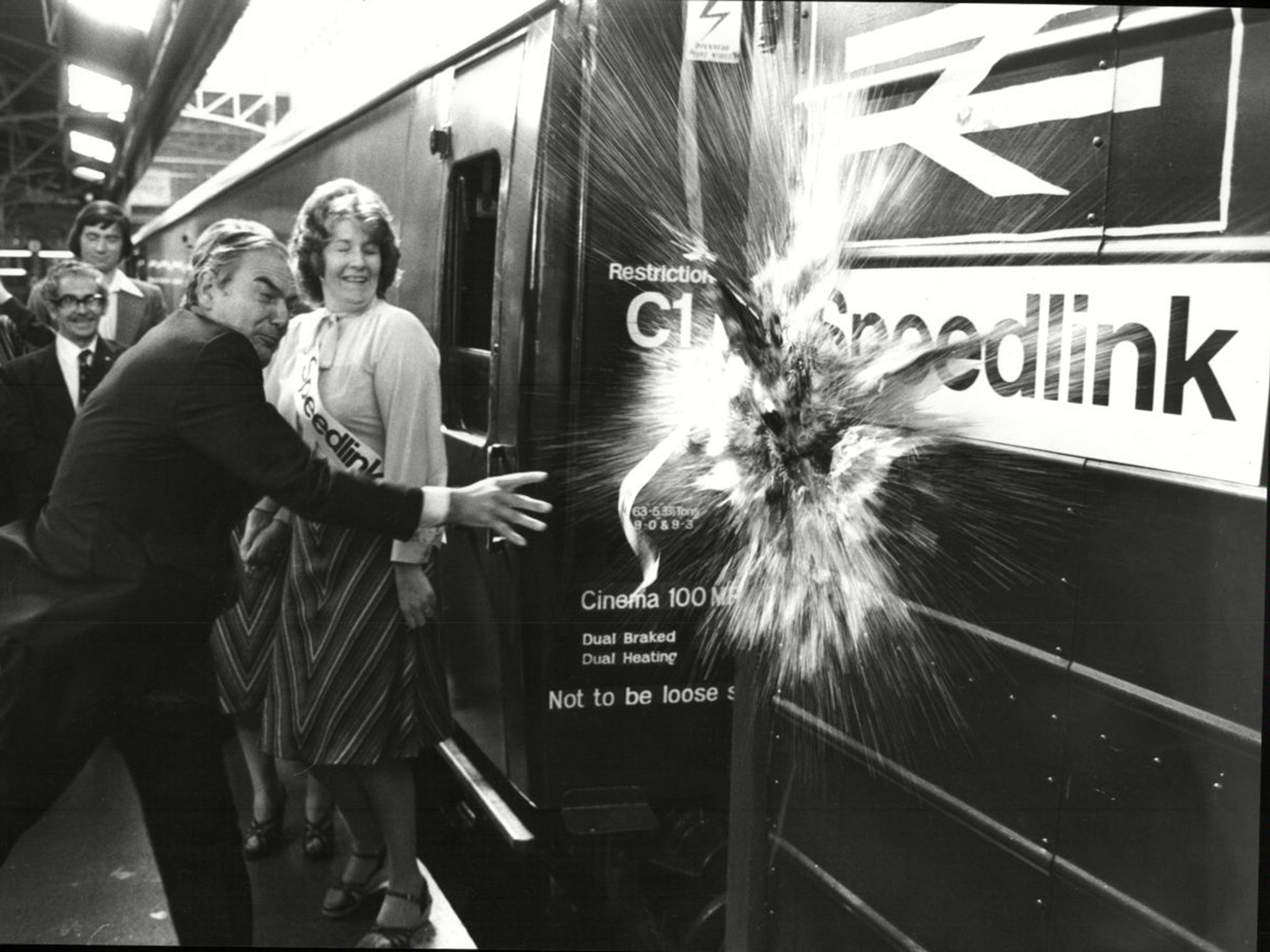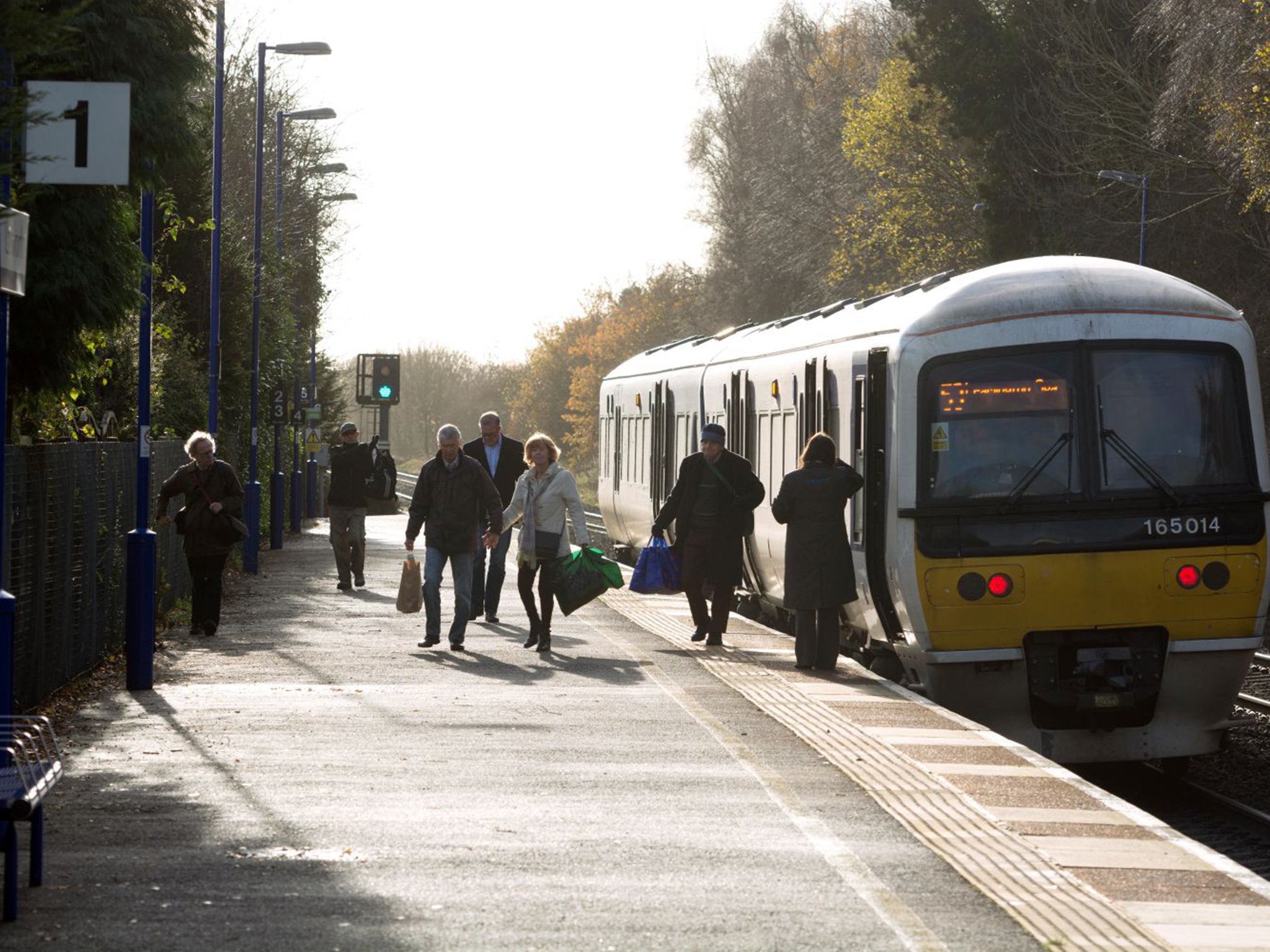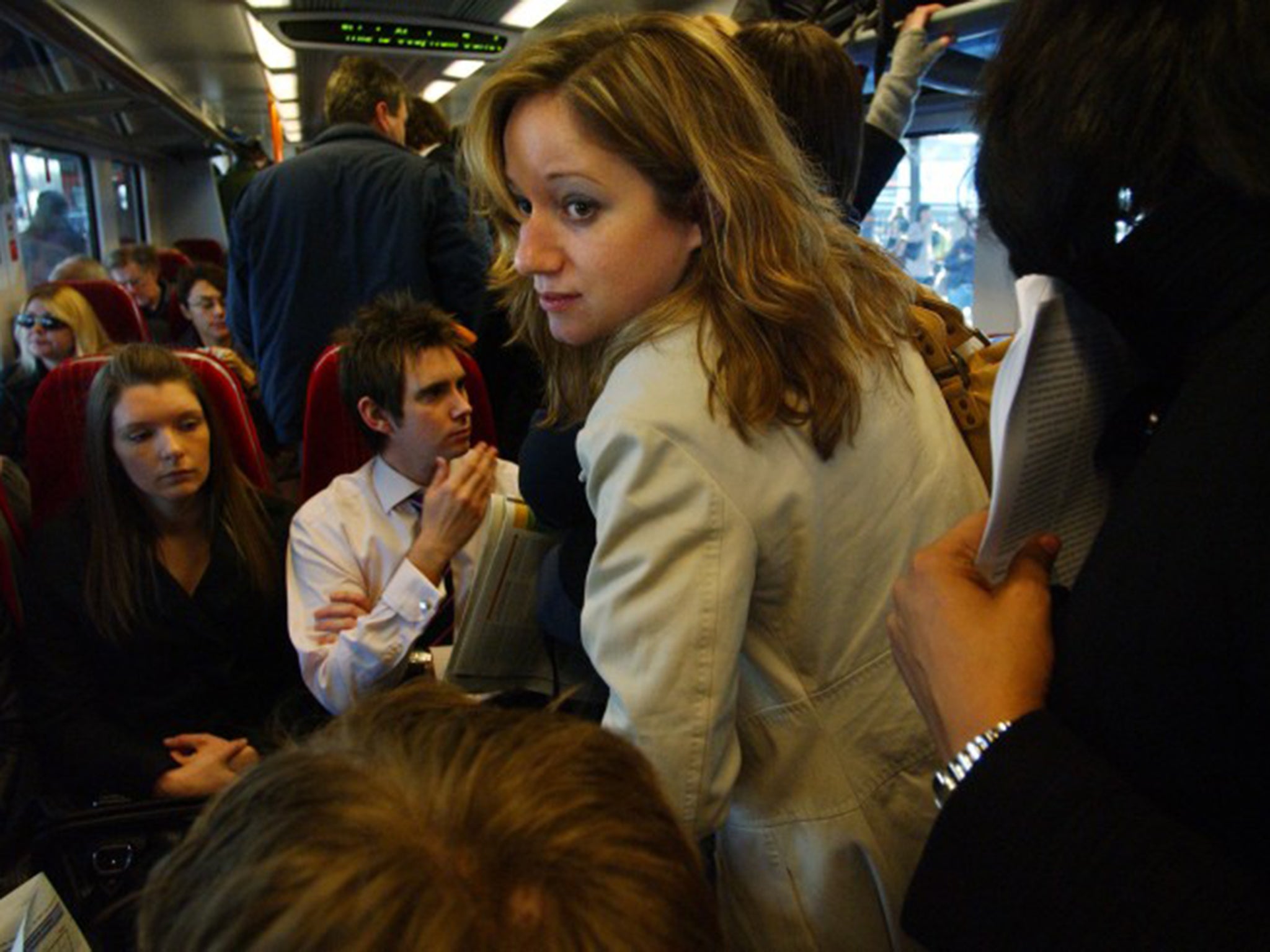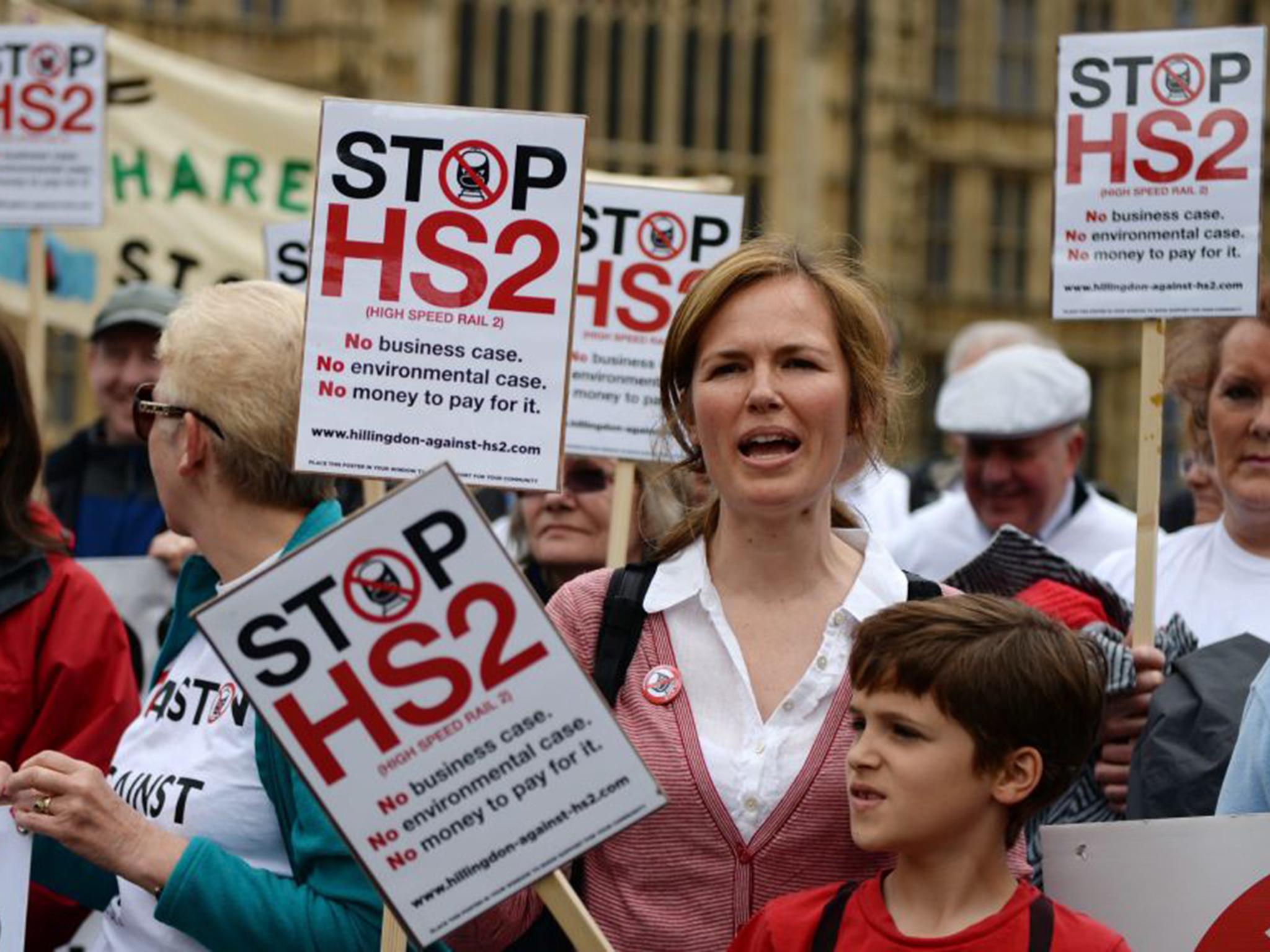Britain's railways doing well despite privatisation
As calls grow for renationalisation, 20 years on, our Travel Correspondent Simon Calder argues that the network is a victim of its own success

Britain’s first privatised train service, which ran 20 years ago this week, was a bus. In the early hours of 4 February 1996, a handful of passengers travelling from Fishguard to Cardiff in South Wales found themselves on the A40 trunk road. Engineering work meant the brave new world of privatisation began with a rail-replacement service from Fishguard to Cardiff. As the train drivers’ union, Aslef, says with a touch of irony, “The honour of working the first privatised train fell to the crew of the 05.10 Twickenham to Waterloo.”
Two decades on, the unions are still vehemently opposed to privatisation, widely characterised as “the great train robbery”.
The TUC general secretary, Frances O’Grady, says: “Years of failed privatisation have left us with exorbitant ticket prices, overcrowded trains and ageing infrastructure. It would be nice if ministers woke up to this reality instead of allowing train companies to milk the system at taxpayers’ and commuters’ expense.”
Certainly, many commuter trains are painfully overcrowded. Some intercity tickets are racing towards £1 a mile, with prices that resemble on-the-spot fines rather than fares. Add a reputation for implausible delays that has introduced “the wrong kind of snow” and even “the wrong kind of sun” into the national lexicon, and it is easy to see why Jeremy Corbyn’s pledge to renationalise the railways has wide support, including from some Conservative voters.

Yet there is an intellectual disconnect between delays, overcrowding and fares. If enough passengers regarded tickets as punitively expensive and insufficiently reliable, they would switch to other modes of transport or simply stay at home. In fact, the main problem facing train operators is one that other industries would love to have: too many customers.
Since privatisation began, passenger numbers have doubled to an average of 4.5 million per day – and the destination of that maiden privatised departure, Waterloo station in London, has just become the first transport terminal in Europe to handle 200 million passengers in a year.
The lines linking Waterloo with south-west London, Surrey and Hampshire are experiencing an unparalleled intensity of use. During a morning rush hour that now extends from 6am to 10am, fast trains are running at a “headway” of two minutes. South West Trains is seeking to keep pace with passenger demand by lengthening trains, though increasing capacity by 25 per cent demands some heavy-duty reworking of Victorian infrastructure.
So what went right and what went wrong along the permanent way?
The 1992 Conservative manifesto claimed: “The best way to produce profound and lasting improvements on the railways is to end BR’s state monopoly.” Yet many – including within the Tory party – believed that privatisation was merely a mechanism to manage the industry’s gradual decline without too heavy a burden on the taxpayer.

British Rail was a beleaguered dinosaur that employed some bright men and women with visions for a better-connected nation, with benefits for communities, business and the environment. But the organisation had endured decades as a political punchbag – and was an easy target for government cuts.
Mark Smith was station manager for the key London commuter stations of Charing Cross, London Bridge and Cannon Street in the early 1990s. “BR would make cutbacks to meet budgetary targets even if this reduced revenue and lost money overall,” he recalls.
Today, Mr Smith runs the seat61.com international rail website, and observes Britain performing significantly ahead of the European pack:
“We have the safest and fastest-growing railway in Europe. We’re re-opening stations and branch lines whilst France and others contemplate closures and cuts. We are revitalising our Caledonian and Cornish sleeper services whilst the Germans prepare to surrender all of theirs at the end of this year.
“Even our on-time performance stacks up surprisingly well against the French, Germans or Italians these days, with my own local operator Chiltern Railways even giving the Swiss a run for their money.”
Chiltern Railways, judged best rail operator in the recent Independent Travel Awards, remains the leading example of the benefits of privatisation. Marylebone station in London has been transformed from a candidate for redevelopment as a coach station to the hub of a 100mph network. Commuters in Oxford will soon be able to choose between Chiltern and Great Western for their daily trip to London, thanks to a resurrected stretch of track that is part of a broader East-West link to Cambridge, Ipswich and Norwich with Brunel’s Great Western line between London and Bristol.
The Great Western line, though, tends to be where uncomfortable questions about the fitness of the present rail set-up start to be asked – not of the train operator, but of the infrastructure provider.
The first entity to be created at privatisation was Railtrack, whose name summed up its role: providing safe and reliable infrastructure for competing train operators, as well as running key stations. The firm failed to meet the first, most crucial requirement. After a series of fatal accidents, Railtrack was replaced by Network Rail – under which safety has improved dramatically. But so dismal is Network Rail’s performance on the other key metrics of reliability, project delivery and financial management that it is now the target of no fewer than three official inquiries.
Passengers waiting on the platforms at Slough, Reading and all stations to Bristol Temple Meads want answers, too: for how much longer must they tolerate repeated signal failures that wreck their travel plans, and when will the much-delayed and over-budget electrification be completed?
The debate over High Speed 2, intended to increase capacity and accelerate journeys between London and the North, highlights once again the tension between local communities and national interest over big infrastructure projects.
Meanwhile, the Labour leader intends to renationalise the railway “line by line” as franchises come up for renewal. But Jamie Andrews, co-founder of the European rail agency, loco2.com, suggests a different model could bring more benefit: allowing the public sector to bid for franchises against private firms: “It’s certainly possible to learn from the experience of East Coast. After the failure of National Express in 2009, the East Coast line was put back into public hands, and reported very high levels of customer satisfaction, only to be handed back to the private sector in March 2015. It seems silly not to try a hybrid model here.”
Mark Smith, though, argues we should be grateful for what we have: “Between private operators and what seems to be a renewed government belief in the railways, our national network is doing rather well. But shhh, it’s not fashionable to say so ….”

Network numbers
200m: passengers using Waterloo Station in London each year
1.68bn: UK rail journeys made in the past 12 months
70.2%: London and the South-East’s share of total rail journeys
£2.3bn: revenue from passenger services in 2015-16 second quarter
532.4m: kilometres travelled by passenger trains in 2014-15
1.1%: average ticket price increase imposed in January
10.7%: trains arriving at least five minutes late in the past 12 months
£4,196: cost of a 12-month season ticket from Basingstoke to London
£1.5bn: savings over five years, on union calculations, if expired franchises were returned to the public sector
62%: support for public ownership of train-operating companies
£4.8bn: Annual government subsidy
Source: Office of Rail and Road
Join our commenting forum
Join thought-provoking conversations, follow other Independent readers and see their replies
Comments
Bookmark popover
Removed from bookmarks